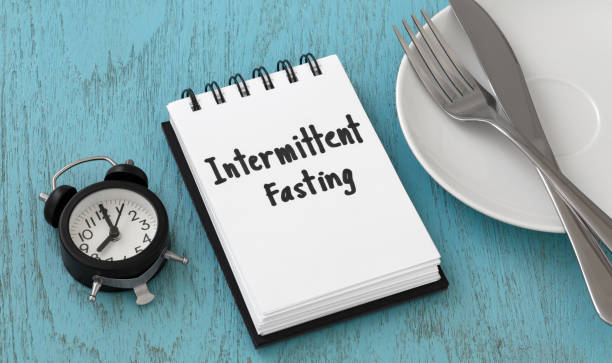Intermittent fasting (IF) is a pattern of eating that involves alternating periods of fasting and eating. It has gained popularity in recent years as a way to lose weight, improve health markers, and promote longevity.
What is Intermittent Fasting?
Intermittent fasting is not a diet, but rather an eating pattern. It involves restricting the time window in which you consume food, rather than limiting the types or amounts of food you eat. There are several different methods of intermittent fasting, but the most common are:
- 16/8 method: This involves fasting for 16 hours and consuming all your daily calories within an 8-hour window.
- 5:2 diet: This involves eating normally for five days of the week and restricting calorie intake to 500-600 calories on two non-consecutive days.
- Alternate-day fasting: This involves alternating between days of unrestricted eating and days of consuming 500-600 calories.
- Eat-stop-eat: This involves fasting for 24 hours once or twice a week.
Benefits of Intermittent Fasting
Intermittent fasting has been associated with several health benefits. Here are some of the most commonly cited benefits:
- Weight loss: Intermittent fasting can lead to weight loss by reducing overall calorie intake and increasing metabolic rate.
- Improved insulin sensitivity: IF has been found to help with insulin sensitivity, which in turn can lower the risk of type 2 diabetes.
- Reduced inflammation: Studies have shown that intermittent fasting can reduce inflammation in the body, which is linked to several chronic diseases.
- Increased autophagy: Autophagy is a process wherein your body recycles and breaks down damaged cells. Intermittent fasting can increase autophagy, which may have anti-aging benefits.
- Improved cognitive function: Intermittent fasting may improve cognitive function by promoting the growth of new nerve cells and increasing the production of brain-derived neurotrophic factor (BDNF), a protein that is important for brain function.
Who Should Do Intermittent Fasting?
Intermittent fasting may be appropriate for many healthy adults who are looking to improve their health and lose weight. However, it may not be suitable for everyone. Here are some factors to consider when deciding if intermittent fasting is right for you:
- Health status: If you have a medical condition such as diabetes, low blood pressure, or a history of eating disorders, you should talk to your healthcare provider before trying intermittent fasting.
- Medications: Some medications, such as those for diabetes or blood pressure, may need to be adjusted if you are fasting. You should talk to your healthcare provider before making any changes to your medication regimen.
- Nutrient needs: If you are not careful, intermittent fasting can lead to nutrient deficiencies. It is important to ensure that you are getting adequate nutrients during your eating periods.
- Lifestyle and preferences: Intermittent fasting may not be suitable for everyone’s lifestyle and preferences. Some people may find it difficult to stick to the fasting schedule or may experience hunger and cravings during the fasting periods.
Celebrities Who Have Tried Intermittent Fasting
Here are a few examples of celebrities who have spoken about their positive experiences with intermittent fasting:
- Jennifer Aniston: The actress has stated in interviews that she follows intermittent fasting, which involves not eating for 16 hours a day and eating during an eight-hour window.
- Hugh Jackman: The actor has credited intermittent fasting as one of the keys to his impressive physique. He reportedly follows a 16:8 fasting schedule.
- Terry Crews: The actor and former NFL player has spoken publicly about his intermittent fasting routine, which involves eating during a six-hour window and fasting for the remaining 18 hours.
- Kourtney Kardashian: The reality TV star has spoken about her experience with intermittent fasting on her blog, Poosh. She reportedly follows a modified version of the 16:8 fasting schedule.
- Halle Berry: The actress has credited intermittent fasting as one of the keys to her youthful appearance. She reportedly follows a 16:8 fasting schedule.
Surviving Your First Week of IF
Starting intermittent fasting can be challenging, especially during the first week as your body adjusts to the new eating pattern. Here are some tips to help you survive your first week of intermittent fasting:
Start slow: If you’re new to fasting, it’s best to start with a shorter fasting period and gradually increase it as you become more comfortable. For example, you could start with a 12-hour fasting period and gradually work your way up to a 16-hour fasting period.
Stay hydrated: Drinking plenty of water during the fasting period can help you feel full and stave off hunger. Aim to drink at least eight glasses of water a day.
Eat nutrient-dense foods: During your eating periods, focus on eating nutrient-dense foods that will keep you full and provide you with the energy you need. This includes foods such as whole grains, lean protein, fruits, and vegetables.
Plan your meals: Planning your meals ahead of time can help you stick to your eating window and avoid the temptation to snack during the fasting period.
Stay busy: Keep yourself busy during the fasting period to distract yourself from hunger. This could include working on a project, reading a book, or going for a walk.
Be patient: It may take your body a few days to adjust to the new eating pattern. Be patient with yourself and give your body time to adapt.
If you work out in a gym such as Crunch Fitness it’s important to schedule your fasting in a way that your body will still have enough fuel so you don’t get fatigued quickly.
Here’s an animated video showing how intermittent fasting works:
